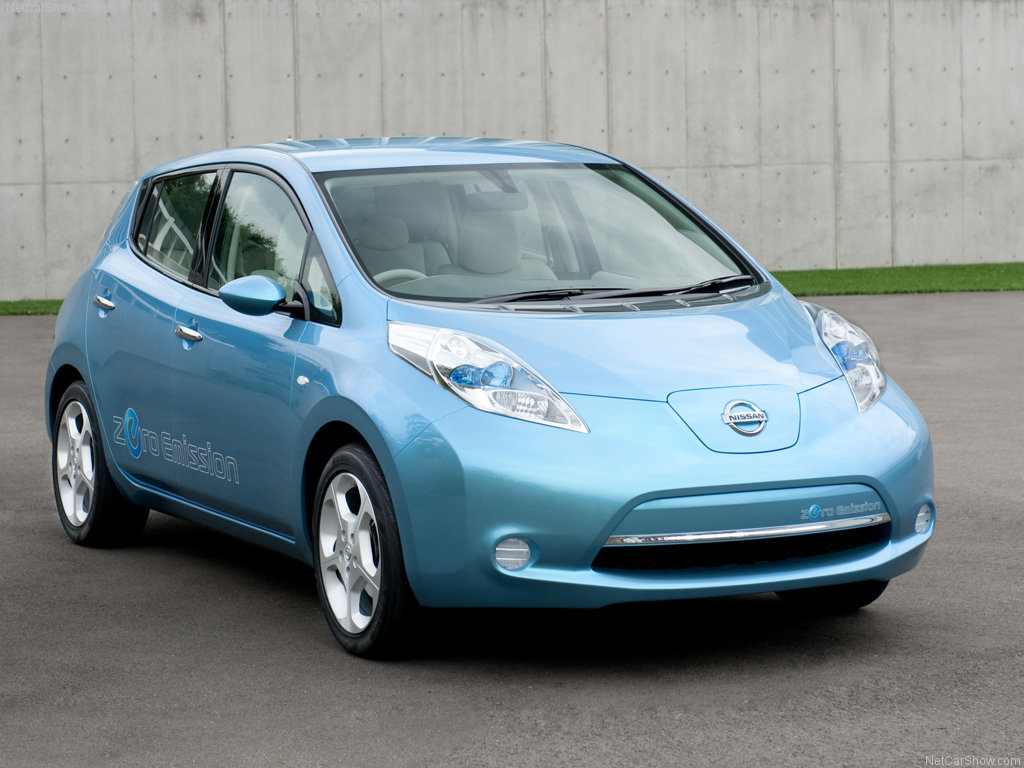A combination of Nissan LEAF's regenerative Unlike internal-combustion engine (ICE) equipped vehicles, Nissan LEAF's power train has no tail pipe, and thus no emission of CO2 or other greenhouse gases. This ensures a highly responsive, fun-to-drive experience that is in keeping with what consumers have come to expect from traditional, gasoline-powered automobiles. Nissan LEAF Nissan LEAF ZERO-EMISSION MOBILITY Nissan LEAF is powered by laminated compact lithium-ion batteries, which generate power output of over 90kW, while its electric motor delivers 80kW/280Nm.
As an added benefit, because the vehicle has less mechanical complexity than a traditional gasoline-powered car, Nissan LEAF is designed to be friendly to the wallet as well as to the environment. Additionally, Nissan LEAF is expected to qualify for an array of significant local, regional and national tax breaks and incentives in markets around the world. Pricing details will be announced closer to start of sales in late 2010; however, the company expects the car to be competitively priced in the range of a well-equipped C-segment vehicle. Just as leaves purify the air in nature, so Nissan LEAF purifies mobility by taking emissions out of the driving experience. It's the first step in what is sure to be an exciting journey - for people all over the world, for Nissan and for the industry." Key characteristics of the Nissan LEAF include: * Zero-emission power train and platform * Affordable pricing * Distinctive design * Real-world range autonomy - 160km (100 miles) * Connected Mobility: Advanced intelligent transportation (IT) system The "LEAF" name is a significant statement about the car itself.
"We have been working tirelessly to make this day a reality - the unveiling of a real-world car that has zero - not simply reduced - emissions. "Nissan LEAF is a tremendous accomplishment - one in which all Nissan employees can take great pride," said Nissan President and CEO Carlos Ghosn. The car is the embodiment of Nissan's radical, transformative vision for the future and the culmination of decades of investment and research. Slated for launch in late 2010 in Japan, the United States, and Europe, Nissan LEAF ushers in a new era of mobility - the zero-emission era.
As an added benefit, because the vehicle has less mechanical complexity than a traditional gasoline-powered car, Nissan LEAF is designed to be friendly to the wallet as well as to the environment. Additionally, Nissan LEAF is expected to qualify for an array of significant local, regional and national tax breaks and incentives in markets around the world. Pricing details will be announced closer to start of sales in late 2010; however, the company expects the car to be competitively priced in the range of a well-equipped C-segment vehicle. Just as leaves purify the air in nature, so Nissan LEAF purifies mobility by taking emissions out of the driving experience. It's the first step in what is sure to be an exciting journey - for people all over the world, for Nissan and for the industry." Key characteristics of the Nissan LEAF include: * Zero-emission power train and platform * Affordable pricing * Distinctive design * Real-world range autonomy - 160km (100 miles) * Connected Mobility: Advanced intelligent transportation (IT) system The "LEAF" name is a significant statement about the car itself.
"We have been working tirelessly to make this day a reality - the unveiling of a real-world car that has zero - not simply reduced - emissions. "Nissan LEAF is a tremendous accomplishment - one in which all Nissan employees can take great pride," said Nissan President and CEO Carlos Ghosn. The car is the embodiment of Nissan's radical, transformative vision for the future and the culmination of decades of investment and research. Slated for launch in late 2010 in Japan, the United States, and Europe, Nissan LEAF ushers in a new era of mobility - the zero-emission era.




No comments:
Post a Comment